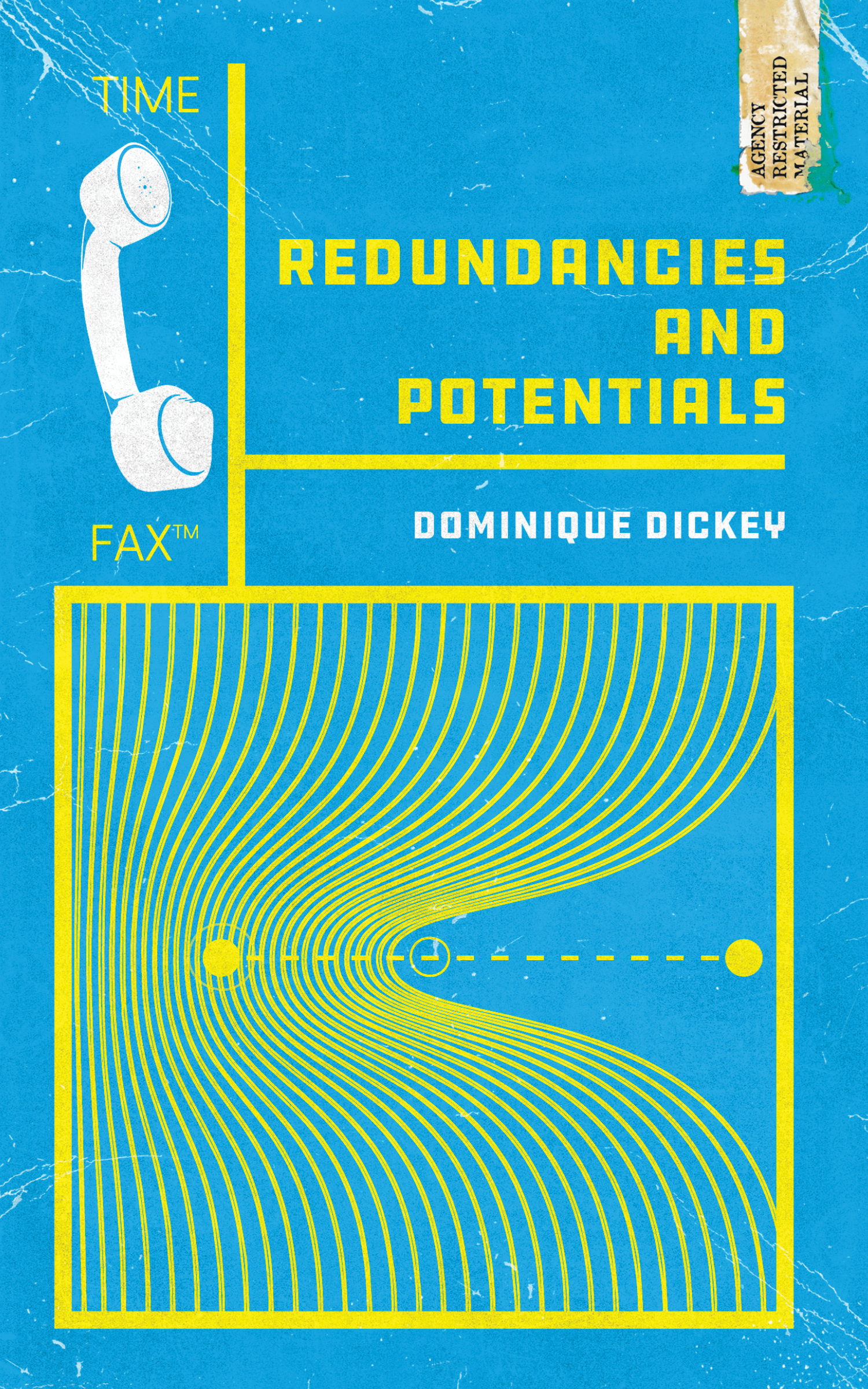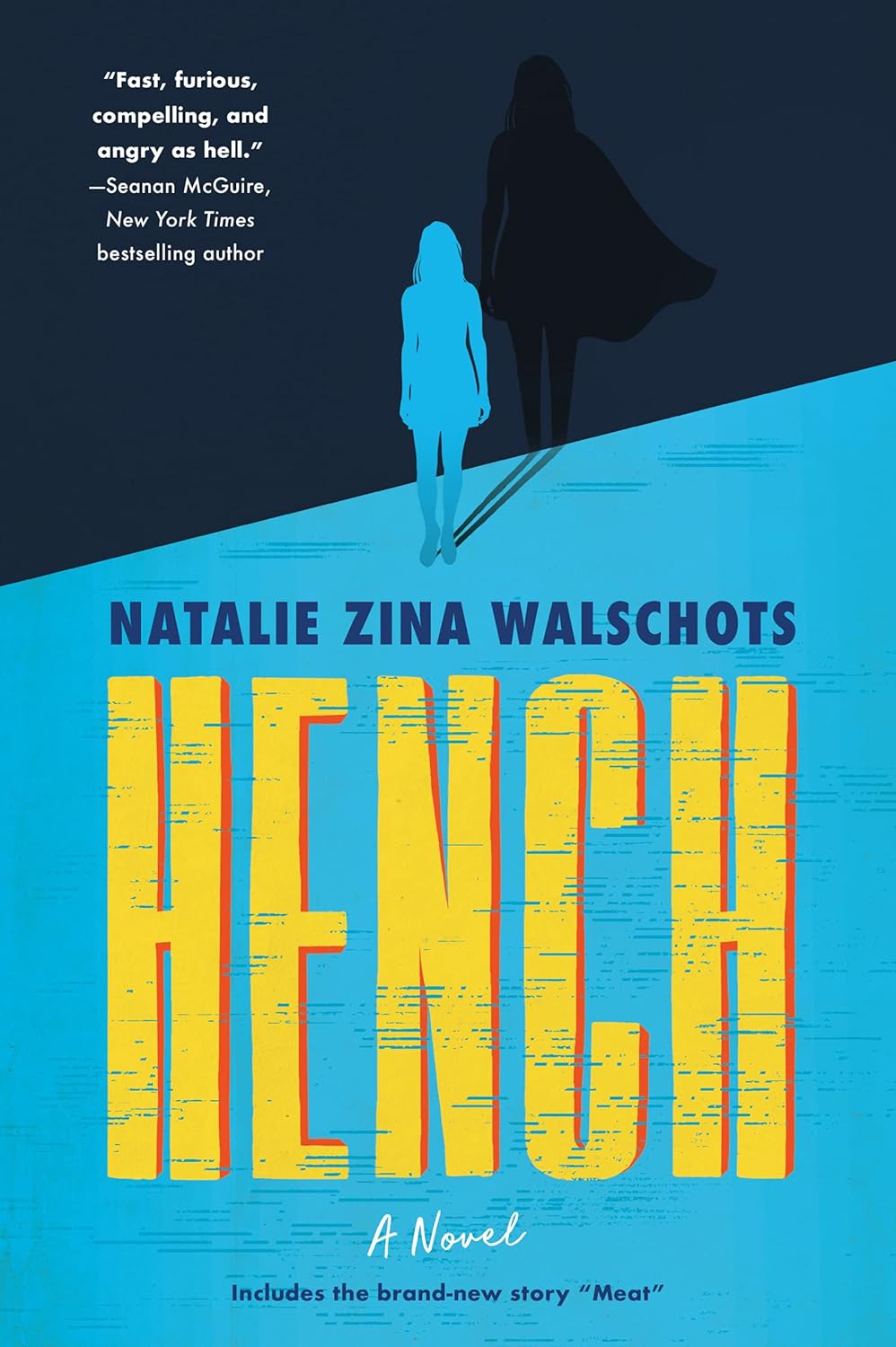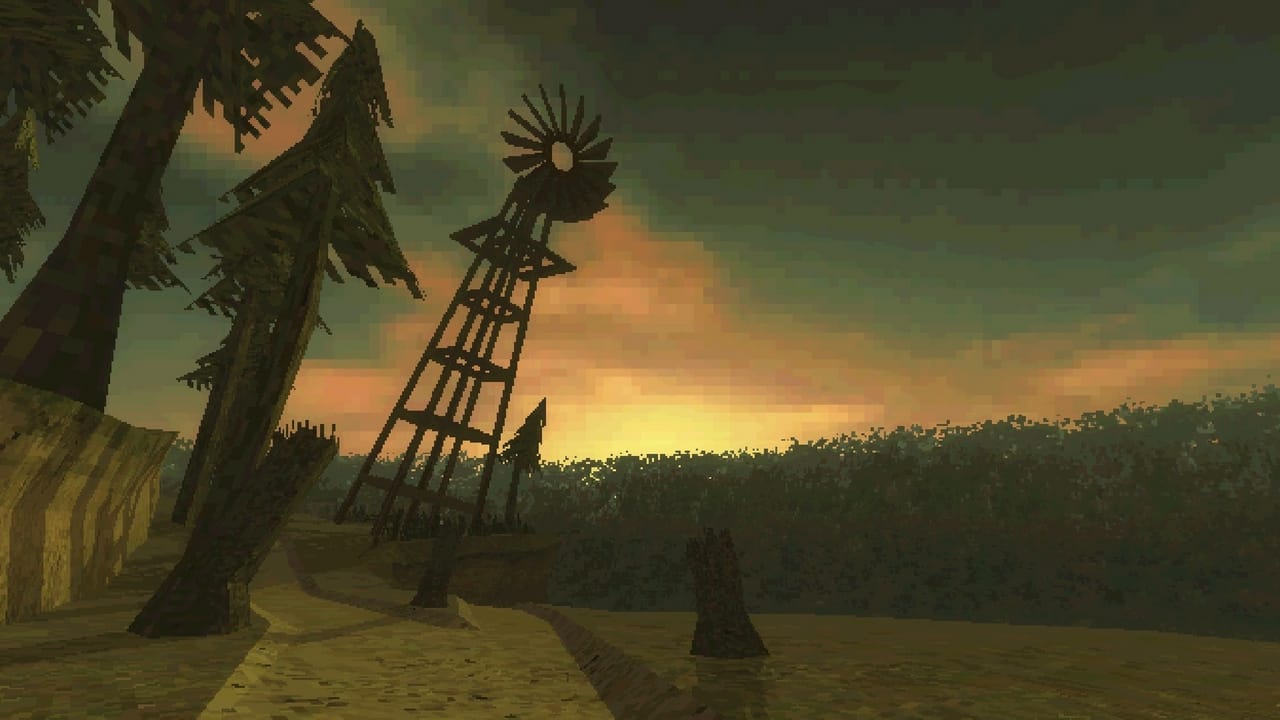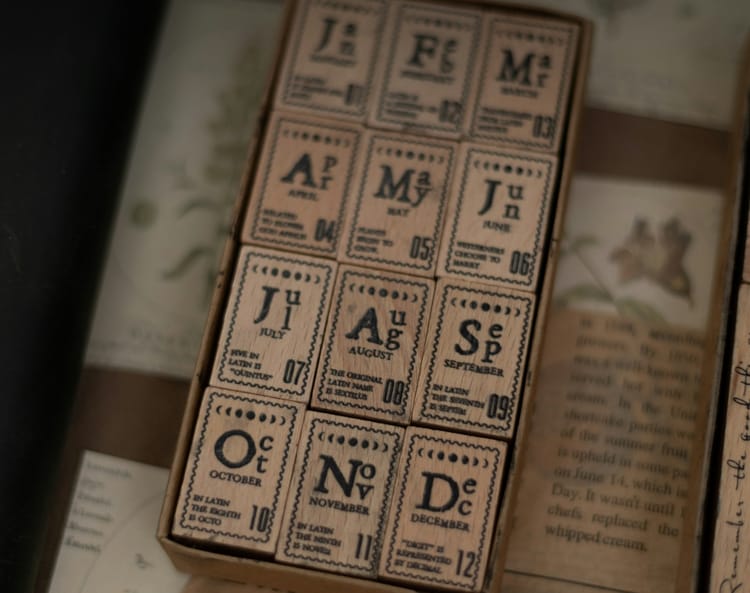Guest Host Dominique Dickey

Stone Soup Digest 03.15.2024
Welcome to the Stone Soup Weekly Digest! This is where I usually share what I'm up to and some of my favorite things from around the internet. Right now, some brilliant authors are taking over the digest while I deal with a bunch of thorny life stuff! Subscribe to Stone Soup to get this in your inbox every week.
Hello my friends! This week we’ve got double-decker guest content, featuring a guest host I adore and a bonus review from friend of the newsletter Alasdair Stuart!
This week’s guest host for the digest is the absolutely wonderful Dominique Dickey. Dickey is a speculative fiction writer and game designer. As the creative director of Sly Robot Games, they’ve created Plant Girl Game (to which I contributed! I love writing for games and Dickey is a big reason why!) and Tomorrow on Revelation III. They contributed to the Nebula Award-winning Thirsty Sword Lesbians and the ENNIE Award-winning Journeys Through the Radiant Citadel. Their short fiction has appeared in venues including Fantasy Magazine, Lightspeed Magazine, and Nightmare Magazine. They live in the DC area, where they’re always on the hunt for their next idea. You can find them most places as @DomSDickey.
Dickey’s novella Redundancies and Potentials is forthcoming from Neon Hemlock in 2024. You can learn more about it here at Neon Hemlock’s 2024 novella series Kickstarter, which there’s still time to back! When you’ve returned from checking that out, take a look at this exclusive cover reveal:
Redundancies and Potentials by Dominique Dickey

The Agency uses time travel to stop crimes before they happen. Unlike most operatives, Aster and her sister Isadora can time travel without a TimeFax machine. Which would be pretty great...except that everyone, even Aster’s own clone, keeps lying to her. When everything she’s believed about the Agency and her life start to unravel, Aster has to decide who to trust, if the Agency is worth saving—and whether she really wants to see the whole timeline.
That’s all from me for this week. Take it away, Dominique!
- Gailey
Learning How to Travel in Time
I find myself intimidated when authors can identify their influences, matching experiences to the specific works they inspired, because my brain feels more like forever soup. Constantly simmering, with new ingredients thrown in every now and again, so that you can’t pick out the contents of each ladleful.
That said, I can pinpoint the exact moment my fascination with time travel began: when I read Rebecca Stead’s 2009 novel When You Reach Me. This book still tears me up in the exact same way, fifteen years later. I could not recommend it more.
I can also pinpoint the moment Redundancies and Potentials was born, in its earliest incarnation: in 2019, when I saw Avengers: Endgame. The movie does not hold up. I do not advise watching it. But the dynamic between Nebula and Gamora, who were adopted by the villain and end up on opposing sides of a galactic conflict as adults, stuck with me. I was gripped by the concept of sister as a verb, that sisterhood could be constructed and imposed upon two women by an outsider. I couldn’t let go of the idea that Thanos made Nebula and Gamora sisters, a relationship that they alternately defined themselves by and chafed against.
When Nebula, a cyborg, scrapped an alternate-timeline version of herself for parts? I was off to the races.
On Repeat
I almost always have music playing, and my music-listening preference is playing an album top-to-bottom. Out of my long list of beloved, immaculate, no-skip albums, here’s what I’ve been reaching for lately:
When I fall in love with a specific song, it’s usually because it reminds me of something I’m writing. The track I played most frequently while working on Redundancies and Potentials was the aptly named “Travel in Time” by Marching Band, which came out around the same time as When You Reach Me and lives in the same quadrant of my psyche.
Replacing the Background Scroll
I’m sure a lot of people can relate to this, but I frequently end up fooling around on my phone when I need something to do with my hands. I call it “background scrolling”—thumbing through apps while ostensibly watching or listening to something else. Lately I’ve been working my way through DrawABox, a free online drawing course, in an effort to replace that habit.
The most frequent criticism I’ve seen of DrawABox is that it’s repetitive—and coming from people who consider themselves visual artists, and would rather get to the meat of making art, that makes sense! I imagine I would be very annoyed if tasked with writing 250 opening lines, all with the same sentence structure, without ever finishing any of those stories. But seeing as my main goal is a sort of structured fidgeting, drawing 250 boxes is a fulfilling objective. (I’ve also gotten really good at drawing straight lines.)
Dominique Is Reading: Hench by Natalie Zina Walschots

Anna does boring things for terrible people because even criminals need office help and she needs a job. Working for a monster lurking beneath the surface of the world isn’t glamorous. But is it really worse than working for an oil conglomerate or an insurance company? In this economy?
As a temp, she’s just a cog in the machine. But when she finally gets a promising assignment, everything goes very wrong, and an encounter with the so-called “hero” leaves her badly injured. And, to her horror, compared to the other bodies strewn about, she’s the lucky one.
So, of course, then she gets laid off.
With no money and no mobility, with only her anger and internet research acumen, she discovers her suffering at the hands of a hero is far from unique. When people start listening to the story that her data tells, she realizes she might not be as powerless as she thinks.
Because the key to everything is data: knowing how to collate it, how to manipulate it, and how to weaponize it. By tallying up the human cost these caped forces of nature wreak upon the world, she discovers that the line between good and evil is mostly marketing. And with social media and viral videos, she can control that appearance.
It’s not too long before she’s employed once more, this time by one of the worst villains on earth. As she becomes an increasingly valuable lieutenant, she might just save the world.
Barnes & Noble | Bad River Website | Local Library | Find an Indie Bookstore
BONUS: Alasdair Stewart Reviews: Paratopic
The incredibly insightful Alasdair Stuart is a pop culture genius, reviewer extraordinaire, and regular Digest contributor. Be sure to subscribe to The Full Lid for more brilliant pop culture analysis.

Paratopic is a game that doesn’t care if you like it, it just cares if you pay attention. You run and are pursued. You pick your way through a city where narcotic VHS is the drug of no one’s choice and everyone’s use. Sometimes you’re a smuggler taking VHS out of the city. Sometimes you’re an assassin, tracking the tapes and the person running with them. Sometimes you’re a birdwatcher and you are not along. There’s a blot on the landscape, an awful, distended phantom that seems to be following every character. You’ll drive. You’ll shoot. It will find you regardless.
Developed by Arbitrary Metric, designed by Jessica Harvey and written by Doc Burford, Paratopic is a ‘walking simulator’ like Everybody’s Gone To The Rapture and Dear Esther filtered through the feverish, clammy early morning feel of a movie you should not have stayed up to watch but cannot turn off. Walking simulators force you to have an emotional response simply because you’re essentially on rails as the story unfolds around you. Paratopic builds on this and uses the rails, and their removal, as a means of accentuating the horror. The three stories switch seemingly at random, using the road trip two characters take to blend their stories and bend time. Sometimes the VHS is on the seat next to you, sometimes it’s a gun. The road to nowhere spools out in front of you as you drift between lanes of wakefulness and oblivion.
The horror of exhaustion is one edge of the knife in the game’s pocket. The other is pervasive sense of doom. The 32-bit style graphics are key to this, and the game’s aesthetic is David Cronenberg’s Tomb Raider: fragile faces plastered onto models that get less human the closer you get. The world feels wrong, deliberately so. That sense of wrongness, of dislocation, becomes the fuel for your journey, the destination, and the shape of the Birdwatcher’s plot. The Smuggler and The Assassin have the luxury of knowing they’re swerving all over the road. The Birdwatcher has no idea they’re in a sandbox until it kills them. You can play the game once and get this experience. Play it again, and you’re rewarded with context but not mercy. An area you can absolutely miss includes a video message which implies a capitalism-powered experiment has maimed the planet. One of the game’s best sections is a conversation you, one or all of you, have with a gas station attendant. Something is badly wrong with everything, everywhere and its expressed in that grounded, mundane way we all deal with horror that makes you want to scream. Instead, you just nod and make small talk and leave. Every step takes you forward, every pause holds you prisoner. The only way out is through, and Lazzie Brown’s remarkable, discordant soundtrack is always dogging your heels.
Then there’s the flying pig. Or at least I’m pretty sure it’s a flying pig. During the Birdwatcher sections you’re led through the forest by a bird you can never quite catch sight of but which seems…pink…and rounded. It’s a moment of whimsy in the gentlest part of the game and its as haunting as a sudden shaft of sunlight in a Simon Stalenhag painting.
It’s also a trap. The birdwatcher’s sections end with a horrific, jagged 8-bit murder. By itself it’s deeply frightening but like everything and everyone in this game it can’t quite rest. The final section sees another character discover the same location as the Birdwatcher did and the aftermath. It’s a nasty moment, the cruelty of the world expressed through sinew and gristle. and it’s the last thing you see and the last choice you make. A phone call to the police made by the last person who should talk to the law, driven outside their glass corridor of a life by unspeakable horror and unable to do anything beyond bear witness. A moment of unavoidable cruelty that leads to a choice grounded in compassion, even here.
Paratopic doesn’t care if you like or not. It just cares that you’ll remember it. You will.
Paratopic is out now for Linux, macOS, Windows, Nintendo Switch, Xbox.
Thanks for taking the wheel this week, Dominique, and congratulations on the upcoming release of Redundancies and Potentials! And Alasdair, thank you as always for sharing your insights.
If you’re in the Stone Soup Supper Club, don’t forget that we have a Zoom coworking date on Thursday, March 21 from 2-4pm PT! If you’re not in the Stone Soup Supper Club… why the heck not? Come join us!
—Gailey





Member discussion